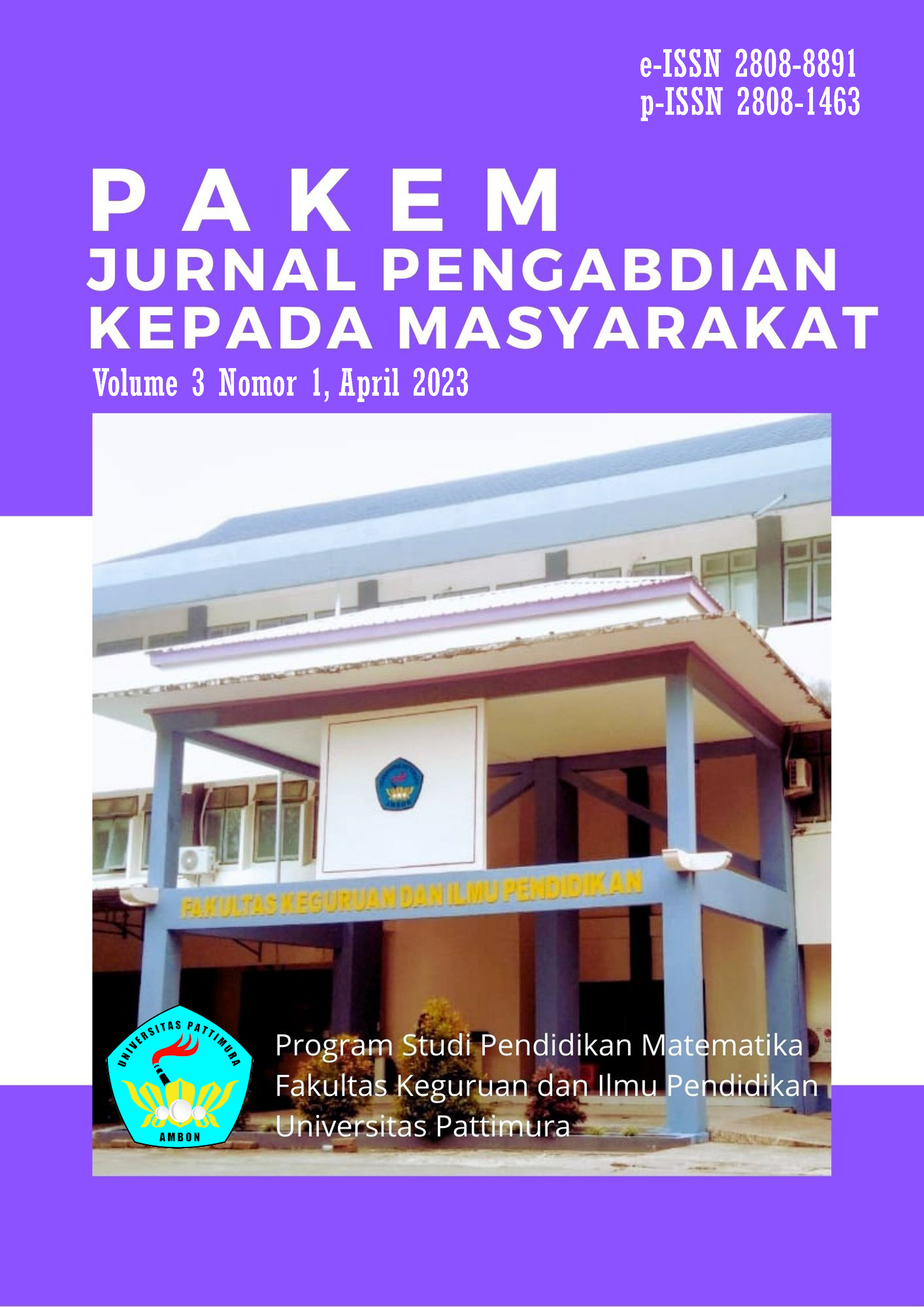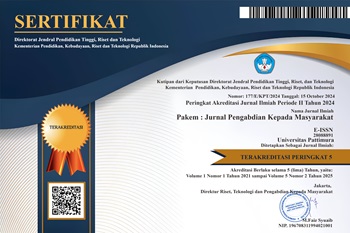SOSIALISASI SISTEM DIGITAL PENDAFTARAN SEMINAR PROPOSAL, HASIL PENELITIAN, DAN UJIAN SARJANA BERBASIS DATABASE
Abstract
The tri dharma of higher education consist of teaching, research, and community service elements that must be carried out by faculty members in higher education institutions. Community service provides a platform for faculty members to contribute to society according to their respective areas of expertise. Learning is an activity carried out to achieve the goals of education. One form of the learning process in higher education is the completion of a final project. The community service provided in this case takes the form of a digital-based service, namely a database that provides convenience for students in completing their final project administration services. The community service method used in this case consists of lectures and discussions to socialize the digital system that can be used by students to facilitate the completion of final project administration tasks. Through this activity, data is collected descriptively by describing responses and feedback. The socialization activity carried out in community service has a good response rate with an achievement percentage of 82.33%, thus it can be seen as an alternative to increasing motivation in developing IT knowledge.
Downloads
Copyright (c) 2023 PAKEM : Jurnal Pengabdian Kepada Masyarakat

This work is licensed under a Creative Commons Attribution-NonCommercial-ShareAlike 4.0 International License.
Authors who publish with PAKEM: Jurnal Pengabdian Kepada Masyarakat agree to the following terms:
- Authors grant copyright to the journal and right of first publication with the work simultaneously licensed under a Creative Commons Attribution License (CC BY-NC-SA 4.0)
- Authors are able to enter into separate, additional contractual arrangements for the non-exclusive distribution of the journal's published version of the work (e.g., post it to an institutional repository or publish it in a book), with an acknowledgment of its initial publication in this journal.
- Authors are permitted and encouraged to post their work online (e.g., in institutional repositories or on their website) prior to and during the submission process, as it can lead to productive exchanges, as well as earlier and greater citation of published work.


1.png)













